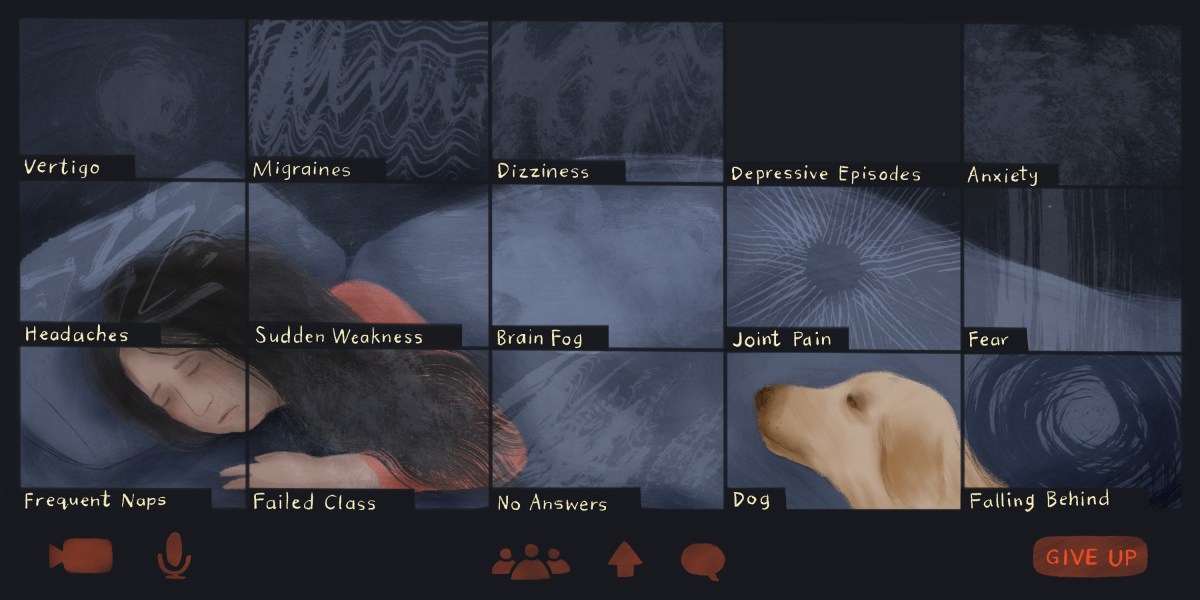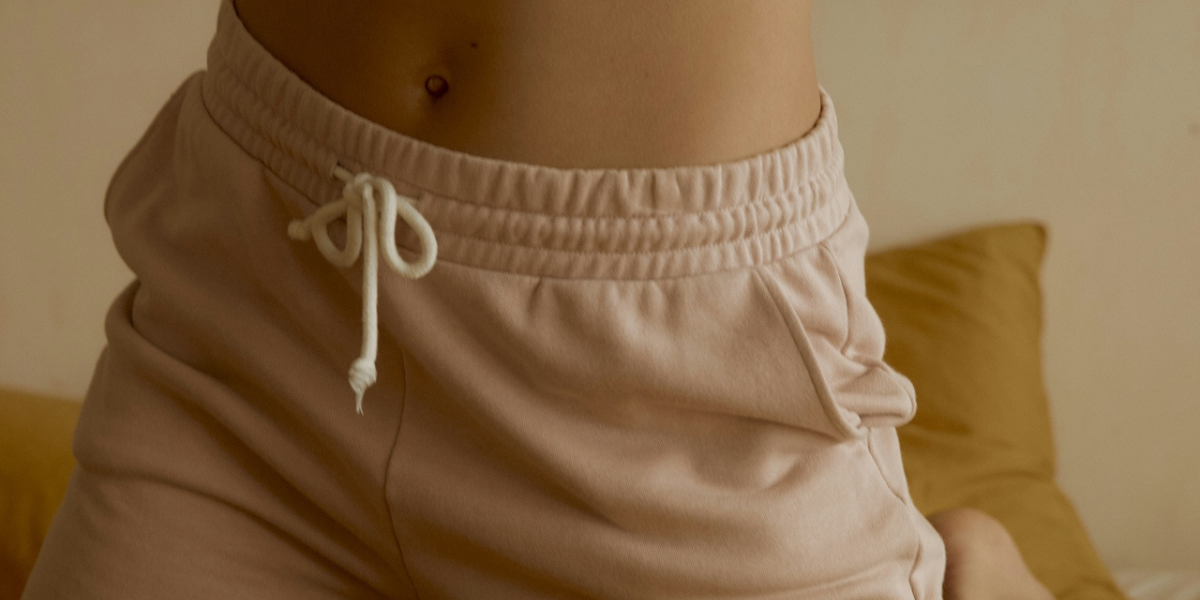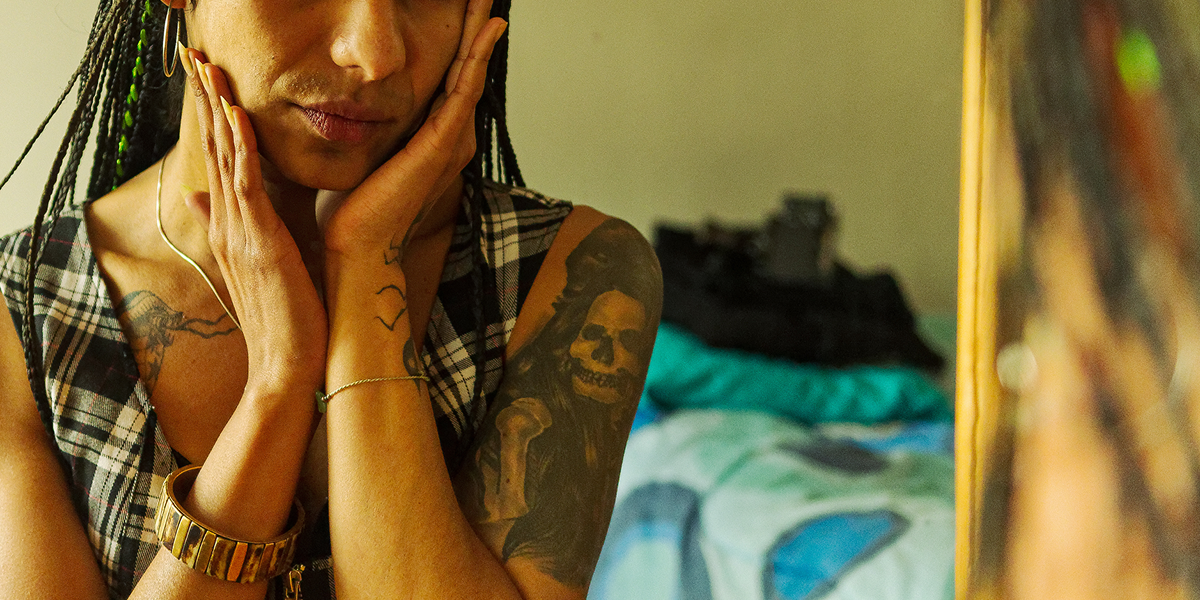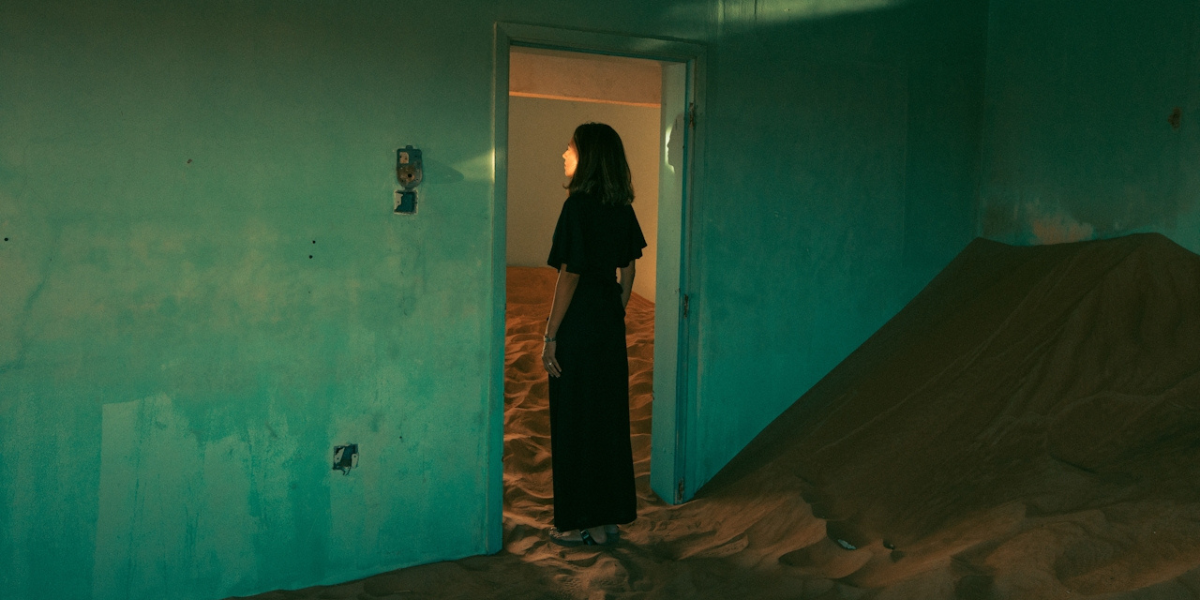This is Autostraddle’s “How To Survive A Post(?)-COVID World” series. In some areas, COVID restrictions are lifting, but regardless of how “post”-COVID some of our individual worlds might feel, a pandemic and its lasting effects rage on. These writers are sharing their struggles and practical knowledge to help readers survive, heal and thrive in 2021.
I have been disabled for several years now, though I didn’t recognize it. However, disability has been a large part of my life. A considerable part of my friends and family are disabled or have medical conditions that are legally disabilities. For years I have witnessed the ableism they were subjected to in academic spaces and workspaces. They were expected to perform despite the detriment to their health, and their requests for accessibility were treated like favors or inconveniences. One opted not to seek accommodations as I did. In their case, it was to avoid the stigma of disability in the workplace. Often, the accommodations or services provided were of no use to them. And if they were unable to function as abled people do, they were blamed or reprimanded. In my academic setting, my physically disabled classmates were forced to attend courses in barely accessible classrooms in hardly accessible buildings at an institution with poor infrastructure.
I’ve been aware of how resistant the corporate and academic world is to remote work, and I was confused by this expectation that people be physically present in the age of emails, smartphones and video conference software. But when the pandemic reached Puerto Rico and the United States, suddenly remote work and remote learning became viable options. I was angry for the people in my life that had been denied the possibility of studying and working in a modality that was accessible to them. A year later, that anger would apply to me.
I was diagnosed with generalized anxiety disorder and depression during my late teens. Both disorders were a result of polycystic ovary syndrome (PCOS), which I began experiencing in my freshman year of college. Even though my academic performance was occasionally impacted by my mental illness, I refused to seek out accommodations at my college’s Disability Services office. I was acing my classes and was convinced that I had no need for accommodations. Requesting them would make me yet another person that abused the system. The pandemic reached my homeland of Puerto Rico in mid-March, the beginning of my last trimester of college. The isolation, the loss of my routine and the tragedies at a global scale pushed me into a month-long depressive episode that made completing my final semester extremely difficult. I submitted most of my work late and almost lost the opportunity to defend my honors thesis. Nevertheless, I graduated (with honors!) and was admitted to my current master’s program. Both my depressive episode and my degree had ended, and I was thrilled to begin my move to Atlanta for graduate school with my partner.
But between late May and early June, my health began faltering. I started experiencing sudden weakness, headaches, dizziness and light-headedness. Running errands left me extremely fatigued. My (former) endocrinologist was inattentive and unhelpful during our telehealth appointments. The cardiologist found nothing wrong. Laboratory and radiology tests did not indicate anything out of the ordinary. Appointments with other specialists were unavailable for months. My move to Atlanta came, and I did not yet have answers.
After I had paid my deposit and booked my flight, the institution I had enrolled in announced that my classes would be taught online. Being able to socially distance eased my anxiety about the pandemic. My fear of contracting COVID in an unfamiliar city in a country where healthcare is so expensive was significantly lessened. I was able to remain in my home for weeks at a time. However, the loneliness and the challenges of virtual learning, along with my poor health, sent me into more depressive episodes. Time that I meant to spend reading and writing papers was instead occupied by medical appointments for vertigo and migraines, and frequent naps. I was sleeping most of the day and waking up feeling tired. I couldn’t concentrate. I fell behind in my classwork. Fortunately, my professors were understanding and accommodating. I took incomplete grades for the semester and flew to Puerto Rico to visit my family, visit more specialists and have a tiny marriage ceremony.
The end of the semester and the Caribbean sun improved my mood significantly. I also adopted an emotional support dog, which gave me great comfort. The migraines virtually disappeared. But the dizzy spells continued. The fatigue that overtook me at the smallest physical exertion persisted. I spent the larger part of my summer vacation in bed. I had yet to find a specialist that would heed my concerns.
Upon returning to Atlanta, I had to rebook my return flight twice because the U.S. Department of Transportation had recently allowed airlines to ban Emotional Support Animals (or ESAs) in the passenger cabin, and my dog was too large to fit under the seat. The ruling was meant to culminate years of passengers claiming their untrained pets as ESAs to avoid pet travel fees. This was perhaps the first time I began to think of myself disabled. If I benefited from accommodations for disabled folk, and the removal of said accommodations impacted me, it made sense to think of myself as having a disability, even if I did not always find it to be disabling. When I learned the news about ESAs, I shared the indignation of other disabled people about the injustice of the situation. Why were people with mental, emotional and intellectual disabilities being punished and forced to incur more expenses because abled people exploited the accommodations for convenience?
Recognizing my disabilities didn’t prompt me to seek accommodations for the spring semester. I already knew what to expect and I was convinced that I could handle it. In addition, I knew that professors were being — or attempting to be — flexible due to our collective circumstances. I had appointments lined up with more specialists, hopeful to obtain a diagnosis. A month into the semester, I was getting worse. The fatigue worsened and I started experiencing joint pain, muscle aches and brain fog. This once again worsened my depression and anxiety. My general physician referred me to a rheumatologist. The laboratory results were “abnormal,” but inconclusive. I was caught in a cycle of mental and physical unwellness that made the most mundane tasks an incredible chore. And even with a lighter workload, I concluded the semester with two more incompletes and failed a class for the first time in my life.
Despite all the difficulties that I faced this past year, I consider myself lucky. I’m lucky that I have a supportive, attentive and understanding partner who encourages me to rest. It pains me to say that I’m lucky to have access to healthcare. Moreover, I’m lucky that I became physically disabled during a year when I wasn’t required to be anywhere. It’s very possible that if my first year of graduate school had not been remote, I would’ve had to drop out of the program I was thrilled to be a part of or risk becoming more ill. Even on my worst days, I could attend class by logging into a virtual classroom from the comfort of my bed. Some of my professors recorded their classes, allowing me to revisit them if I was too weak to take notes or was unable to focus on the lesson. So when the university I attend announced a return to face-to-face classes, I felt afraid.
I haven’t yet received a diagnosis to certify that I have a physical disability that requires accommodations. I’m afraid I won’t have the spoons for the one hour commute and the three to six hours of sitting in a classroom. I’m afraid professors’ empathy and understanding ended along with remote learning. I’m finally requesting accommodations, but they are limited to disability-excused absences and I fear that this won’t prevent me from missing material and possibly falling behind.
Most of all, I still fear COVID. Recently, people who suffer from PCOS have been identified as high-risk patients, although we’re not included on the CDC comorbidity list. I don’t know if my yet-to-be-diagnosed illness also puts me at higher risk of contracting the disease or suffering severe symptoms. My loved ones who, like me, obtained relief, rest and safety from remote work will soon be expected to return to taxing and ableist environments. COVID is still a threat, especially to disabled and chronically ill people, because we are considered disposable. Our world is more than eager to go back to the inaccessible “normal” of before instead of building a new one where disabled people can use the numerous technological resources of today to learn, work and live our lives on our own terms.
What now? I will keep wearing my mask. I will not push myself to meet impossible demands for me and my body. I will continue to advocate for myself in ableist spaces. And I will continue to rest in a world that devalues me because I cannot go without it.









Comments
I can’t even express how much I resonate with this. Throughout the pandemic I’ve suffered severe chronic migraines, covid (with lasting effects on my health), and was diagnosed with anorexia. I’m currently seeking treatment and finding a tangle of other mental health problems including possible ocd, anxiety, pmdd… This strikes a chord for me because all my friends are going back to normal, partying etc. and taking more classes and I physically can’t. Being a student with mental illness in this time sucks so much. I feel like no one talks about it then I am always the one with the problems. Thanks for writing this, it helps me to see that someone else has such a similar experience to me. Advocating for myself is SO hard, but you have inspired me to keep doing it.
…I relate to this so much! I was diagnosed with lupus and anxiety mid-way through undergrad, and like you, was so hesitant to get accommodations for a really long time. I also started a graduate program during the pandemic and I’m so glad that I immediately made an appointment with the disability office on campus. They made my accommodations permanent after I spoke to them about my symptoms and affect on my life WITHOUT getting documentation from medical providers (I moved cross-country and my previous doctors were now out-of-network/unwilling to provide notes). I don’t know what university you go to, but I think disability centers are really stepping it up during the pandemic and there’s a possibility they might do the same for you, especially if you share that you haven’t been able to get a diagnosis but are currently working on it.
I also hope this piece reminds people that the pandemic isn’t going to stop, especially for chronically ill/disabled people and that it’s important to keep wearing masks and advocating for the continuation of remote and accessible learning/working environments for everyone. Thanks so much for sharing this!
(also as a side note: a lot of your symptoms seem to overlap with autoimmune disorders, and you may find prednisone or another corticosteroid helpful? My doctors were willing to prescribe it years before I was officially diagnosed and it really helped with my day-to-day. I know your migraines have disappeared (congrats!!) but my neurologist has also recommended prednisone for extended migraine attacks, so it should help with a lot of symptoms. The caveat is that it is an immunosuppressant and you need to be extra cognizant with COVID-19 exposure because it will increase your risk in addition to PCOS. Apologies if this isn’t helpful, but I wish someone suggested it earlier to me to discuss with my doctors!)
Have you ruled out POTS?
Thank you for sharing! I’ve been thinking a lot about disability and accommodations I may need in the future. I got through undergrad and grad school with my many mental health challenges without ever using accommodations (but now I wonder how much it might have helped if I had). I finished school 3yrs ago thankfully. But a bit over ago I finally got my PCOS diagnosed, shortly after got COVID and had Long Covid very acutely for 4 months, but I am still experiencing some lasting effects of it. I’m also in the midst of figuring out exactly what’s going on with me, current ? is whether thyroid levels are involved and they seem to be. Oh and have also self-diagnoses that I’m autistic, unmasking because of pandemic circumstances has been enlightening. I’ve been unemployed the entire pandemic and I’m very very frightened of going back to work at some point and how to navigate accommodations. I definitely mentally and physically can’t do what I did before.
I appreciate how other people are navigating all this! Thank you
Thank you for sharing!! I have a surprisingly similar medical story. I also have PCOS and I was recently diagnosed with treatment-resistant Lyme Disease.
I’ll be thinking about you. I wish you answers, peace, and support.
This really resonate with me as I am trying to navigate how to approach accommodations during grad school. I don’t know what I would have done if I had to teach in person last year and the one class I took that shifted to in person was really difficult for me to attend. Honestly, I didn’t know what was happening to me or that when I was diagnosed this past month, I would be diagnosed with an autoimmune disease. Thankfully, my professors have been incredibly supportive and I have access to emergency grants for some of the medical expenses but I am also concern about the next year and how to make an official accommodation request. I hope you’re able to get the support you need for the next school year.
Thank you so much for writing this Gabriela. I’m struggling with final exams right at the moment. I went into my undergrad knowing I was dealing with mental illness and two invisible physical disabilities, and I’ve always had approval for accommodations, but like you say none of the accommodations offered for my subjects are really helpful. I definitely found my course coordinators were more empathetic in 2020, but since then there has been a slide – especially because in Australia we have relatively low community levels of COVID, a lot of people don’t take it seriously and it makes them less empathetic to immunocompromised people, and lecturers are starting to increase the pressure for people to start coming back in person. I physically can’t at the moment, so if they stop running classes online for next semester, I’ll have to find out whether I can defer for 6 months. It’s extremely stressful not knowing if they’re about to abruptly change their plans with no warning, yet again.
Sending love to everyone in the comments, too, it’s making me feel better knowing we have this community.
Another student who can relate here, inconclusive rheumatology results and all. I’m so not ready for fall. xx
It means so much to see this perspective represented. I really connect with fear of going back out into an unaccommodating world, where people refuse to protect me from covid. Also I connect with the long, self-destructive struggle to push through rather than ask others to accommodate my needs.
Oh man. Thank you. As someone registering with a disabilities commission for the first time at uni, this resonates.
Great article. It’s unfortunate that the modern ableist culture makes it so difficult for people with disabilities.
Hi Gabriela,
Beautifully written article, I really resonate with your story as well. I wanted to ask if you have been checked for Ehlers Danlos Syndrome and POTS? Your symptoms seem close to mine and it took me years to get diagnosed. Thank you for sharing with your journey with us. Good luck!
Remote learning is actually difficult to leave. I work and study at home and I am at the peak of my productivity. Also, it is cool that we can use external sources for help, I have found some reviews at https://essaysaviour.review/review-about-edubirdie-com-services/ and I am happy that after reading this review, I found a place where I can get my tasks done.
You must understand that under any life circumstances, learning should be a joy to you. I made my choice in favor of nursing – this is a great career for students, as it involves professional growth and specialization in different areas, you can find more useful information about this here https://tullisfarmschool.org/ . Many associate nurses with hospitals, and for good reason, because more than half of all health workers work there.